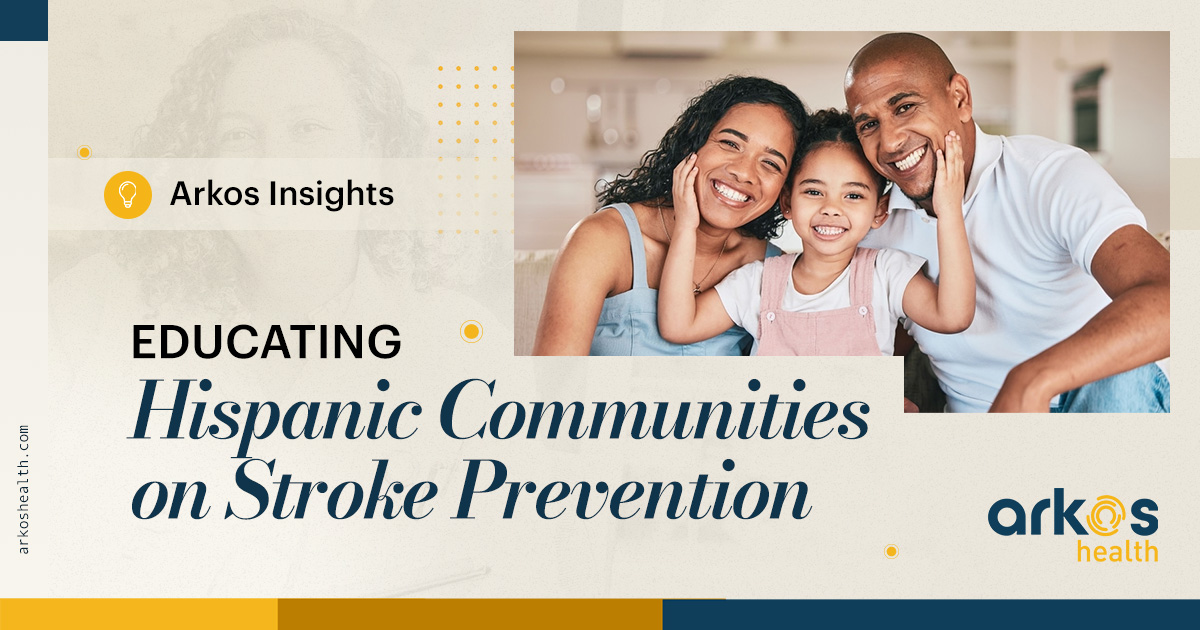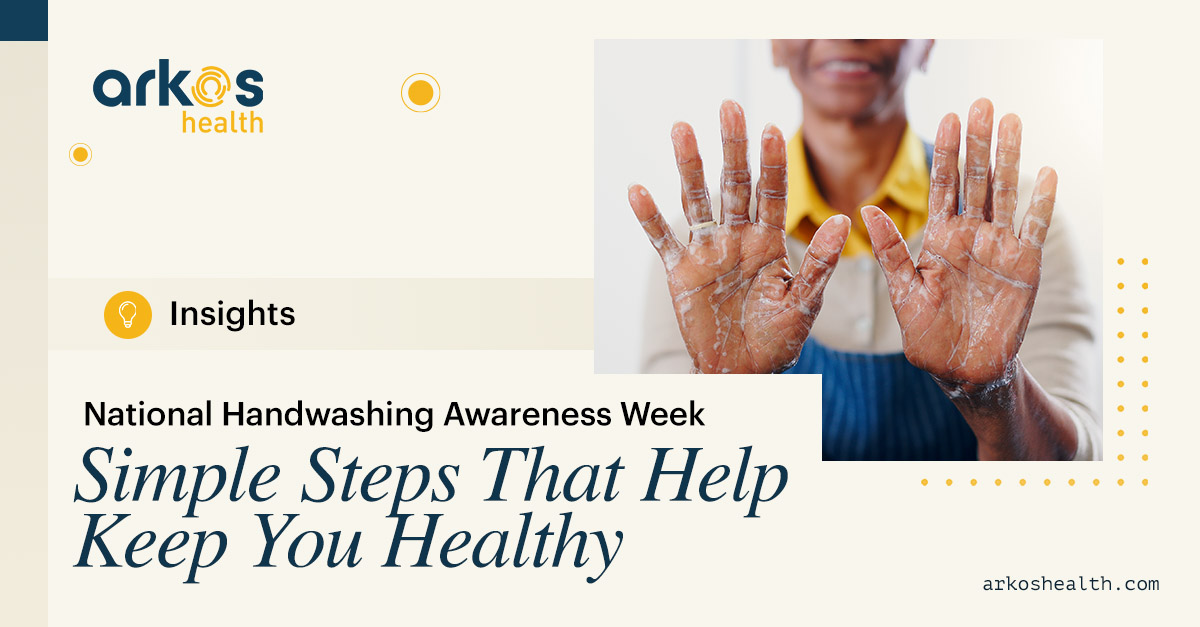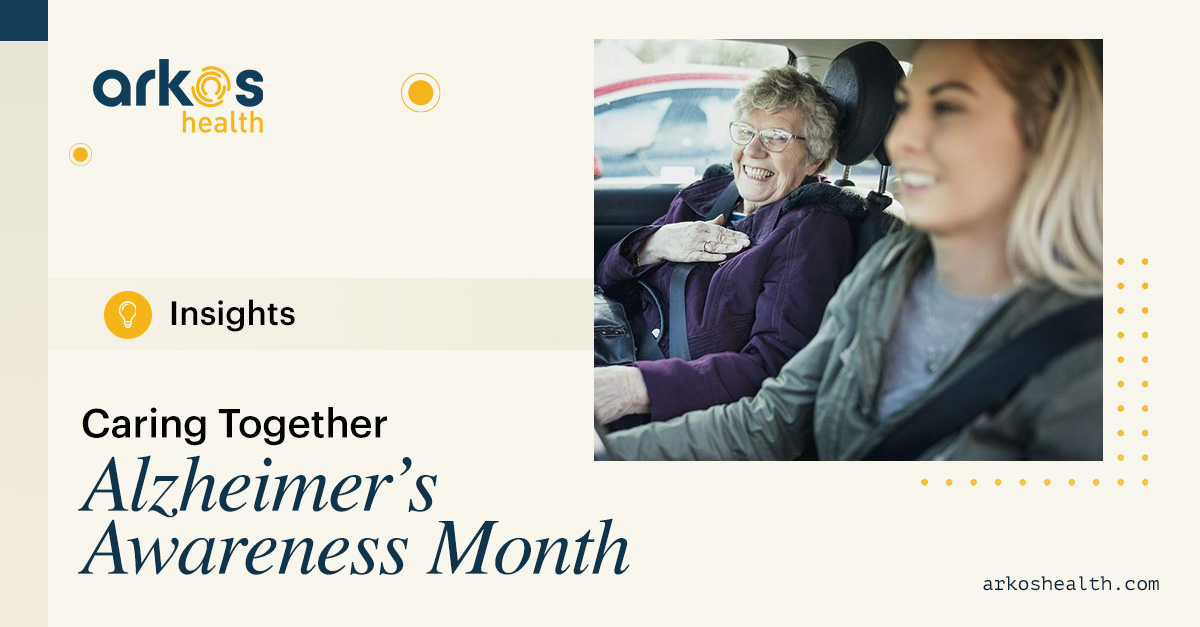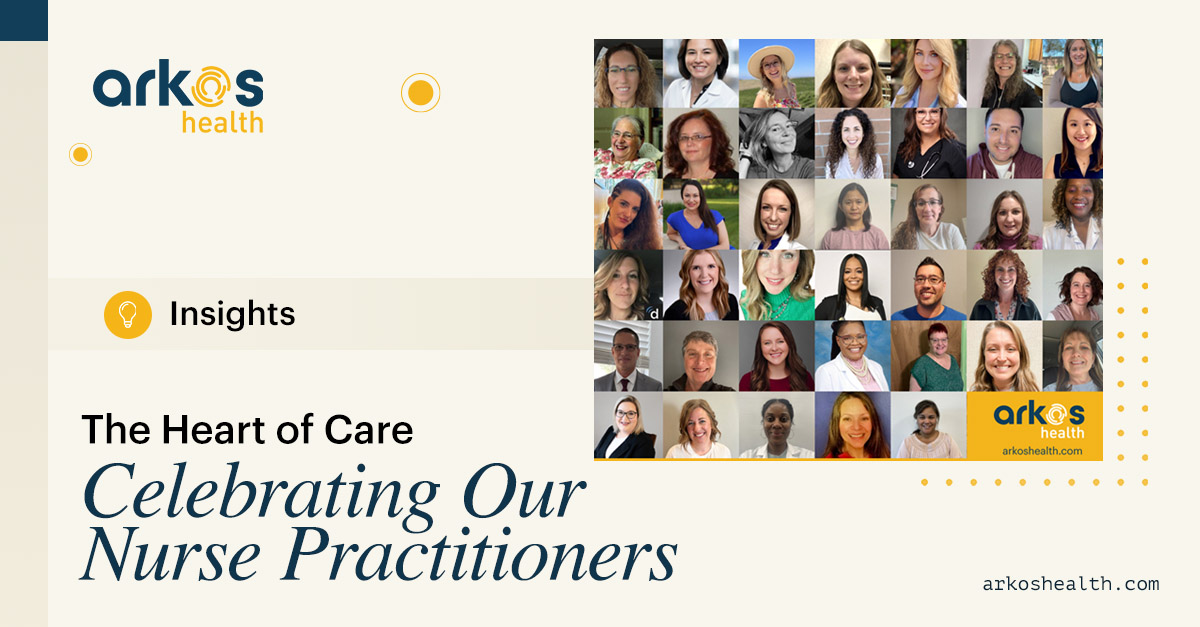
This year, the team at Arkos is working in collaboration with The American Heart Association to
advance the R.Á.P.I.D.O campaign.
Stroke is the #3 killer of Hispanic women and the #4 killer of Hispanic men.
Beginning this month, the campaign will introduce Spanish-dominant audiences to the
importance of R.Á.P.I.D.O., a Spanish acronym for stroke warning signs that can help save lives.
The Association seeks to empower the Hispanic-Latino community to learn the stroke warning
signs and what to do using the R.Á.P.I.D.O. acronym. This approach considers the community’s
unique cultural and linguistic needs, facilitating better comprehension and response to stroke
symptoms. The easy-to-remember acronym stands for:
R – Rostro caído (Face drooping)
Á – Alteración del equilibrio (Loss of Balance, or Lack of Coordination)
P – Pérdida de fuerza en el brazo (Arm weakness)
I – Impedimento visual repentino (Sudden vision difficulty)
D – Dificultad para hablar (Slurred or Strange Speech)
O – Obtén ayuda, llama al 911 (Get help, call 911)
When someone has a stroke, every second counts.
Identifying the symptoms and calling 911 quickly can make the difference between life and
death or long-term disability.
According to American Stroke Association stroke survey data, only 39% of Hispanic-Latino
consumers said they were familiar with the English stroke warning sign acronym, F.A.S.T., and
only 42% could correctly name two stroke warning signs unaided.
To help close the gap between knowledge and action, the American Stroke Association, a
division of the American Heart Association, in 2023 launched Juntos Contra el Derrame
Cerebral, a culturally relevant Spanish-language campaign to raise awareness among Spanish-
dominant audiences around the use and understanding of R.Á.P.I.D.O., and Arkos is honored to
help expand the campaign in the markets we serve this Spring.
Hispanic-Latino adults in the U.S. have a higher risk of stroke due to unmanaged risk factors,
limited access to health care, lower health literacy rates, cultural barriers and socioeconomic
determinants of health.
Hispanic-Latino stroke patients also have longer delay times to hospital arrival than non-
Hispanic stroke patients, greater stroke severity, and poorer outcomes following stroke
according to studies conducted by the AHA, ASA, and partners.
The R.Á.P.I.D.O. acronym was developed by a group of stroke experts at UTHealth Houston,
many of whom are also American Stroke Association volunteers. The Association conducted
scientific research to test the acronym’s
Achieving health equity requires a multifaceted approach, including targeted education,
accessible resources, and community engagement.
By leveraging the cultural relevance of R.Á.P.I.D.O. and spreading awareness about stroke
prevention within the Hispanic-Latino community, the Association, along with individuals,
health care professionals, community organizations and more, aims to increase knowledge of
stroke signs, symptoms, immediate management and modifiable risk factors of stroke, helping
bridge the gap in stroke disparities and work towards achieving health equity for all people.
It will empower Hispanic-Latino communities to increase their knowledge of stroke signs,
symptoms, immediate management, and modifiable risk factors of stroke, helping bridge the
gap in stroke disparities and work towards achieving health equity for all.
For more information about R.A.P.I.D.O. and stroke awareness, visit www.derramecerebral.org
or www.stroke.org/rapido.
BY Arkos Insights
Published May 17, 2024 1:57PM


